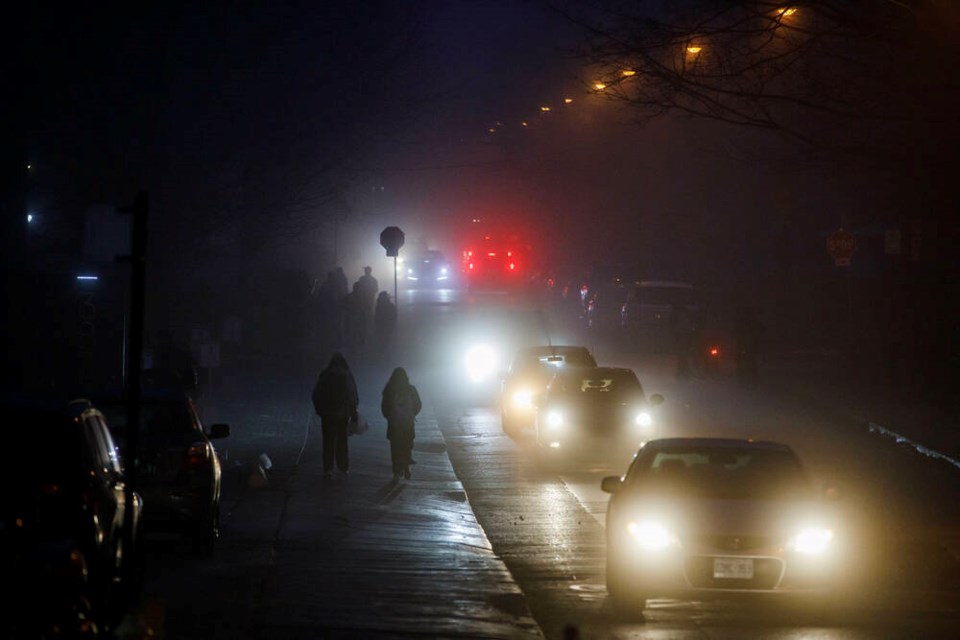Being in a car crash is one of the most traumatic events in daily life. Even if there are no fatalities or injuries, the after effects of colliding with a person, another vehicle or even an object can linger for years — and that’s not counting the odysseys of dealing with insurance and repair people.
On the road, you are unfortunately not in control of all the variables. Collisions can happen despite doing everything right. But taking some simple precautions to prevent a collision from happening in the first place is some of the best “medicine” a driver can ever take.
Make sure your car is mechanically sound. It doesn’t mean that your engine is always necessarily tuned to the highest possible performance standards but it does mean that your brakes are in good working order and all your exterior lights work. Being seen and signaling your intentions make things much easier for other drivers.
I met a large oncoming pickup truck recently on the highway — all headlights and high beams ablaze. I don’t like being the hall monitor out on the road but I had to flash this guy so I could see. He responded — all of his headlights went out — blackout. Clearly there was a problem with his headlight switch, allowing for full high beams only. Fortunately it was a divided highway, but how many other drivers get blinded because someone can’t or won’t repair a simple switch.
Rear enders are one of the most common factors in a collision. Most occur because people follow too closely. Others occur because drivers either are not paying attention to the road in front or are distracted. Especially on a highway, one way to grab their attention is to tap the brake several times as you start to slow for a traffic backup. This red light semaphore is often enough to catch the eye of distracted drivers, putting their mind back on the road. This is even more important at night.
I’ve seen some drivers recently who flip on their four-way flashers to alert vehicles behind to an impending slow down but I’m not sure that’s completely safe. In one incident I saw that drivers pulling up behind the four-way flasher simply change lanes then brake abruptly once they realized all traffic was coming to a stop.
The fourway flashing method is best reserved for semi trucks making their way slowly up those steep hills.
A fresh green light at an intersection is merely a change of colour. By that I mean plowing through a fresh green light is dangerous. It’s better to take that extra second or two by slowing slightly and having a good look around even though your light is green. Practice actually turning your head to the right and the left as you approach the intersection — look for those late light runners coming in from your sides.
One thing I commonly spot in this scenario is people who can’t resist checking their phones while stopped at a red light. All they’re doing is just glancing, because that Tik-Tok video is the most important thing in the world at that moment, but that second and a half distraction, followed by a jump start into an intersection isn’t good driving. That’s because that other Tik-Tok viewer has just blown through a red light themselves. So eyes on the road — even when waiting at a red light.
Changing lanes unsafely is also another major cause of collisions. As a driver you are safer by ensuring your own mirrors are properly adjusted and that proper shoulder checking is always part of your routine.
I’ve also added a small wide angle convex “lane-changer” mirror to both my outside mirrors. They should never excuse you from shoulder checking, but they are great in really heavy traffic, particularly on freeways, to give you that extra peek over your shoulder for people in your blind spot.
Practise passenger discipline when driving. This means saving the detailed conversation about family or world affairs for the living room or the coffee shop.
I wrote recently about drivers who can’t seem to maintain even speeds on a regular stretch of road. In most cases those moments seemed to accompany the driver clearly engaged in deep conversations with passengers, pointing out this and that, laughing and sometimes singing. The only things seemingly missing here were a deck of cards and a bowl of snacks. We limit the number of passengers in new-driver vehicles for good reason. Too many of them were dying in the frivolity of the joy-ride.
There’s no escaping the luck factor on our roads but taking even some minor precautions can be the difference between a trip to the grocery store and a life changing moment.




